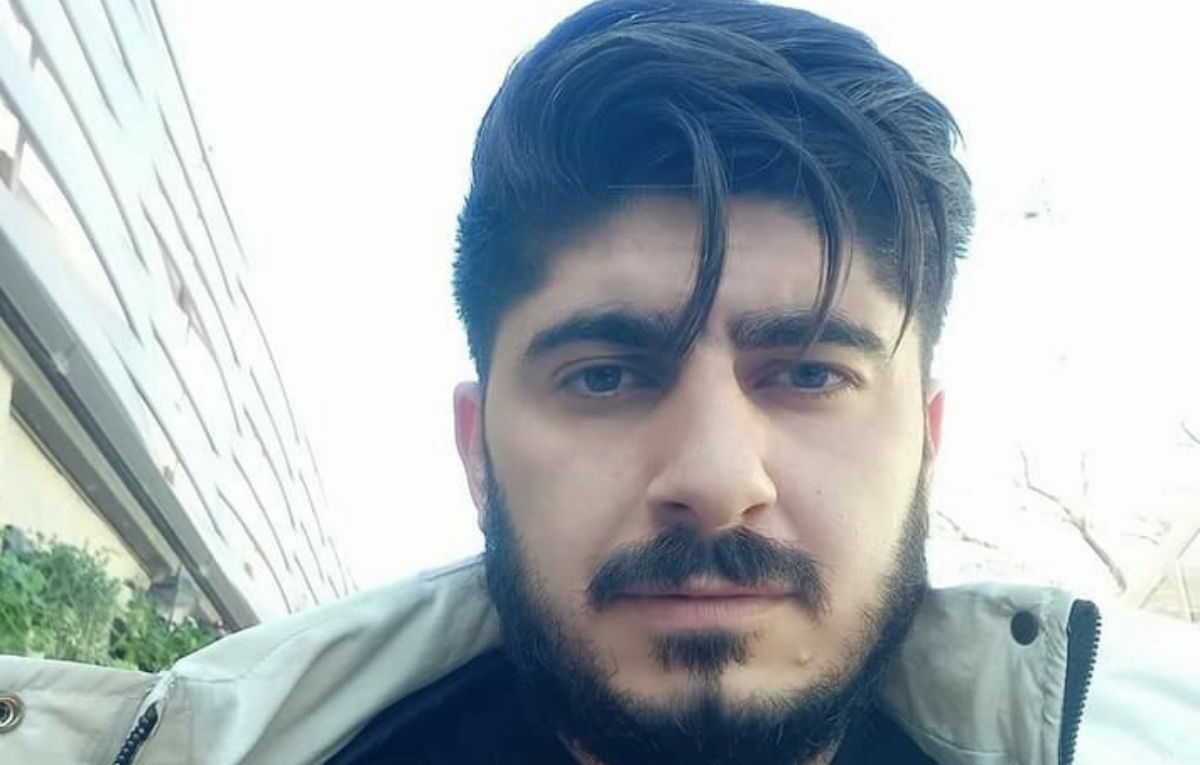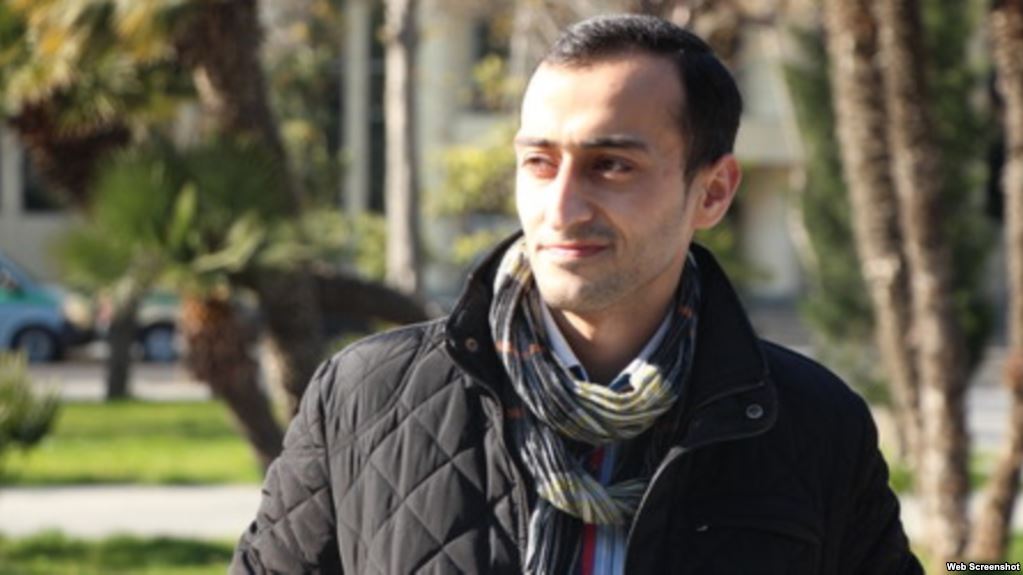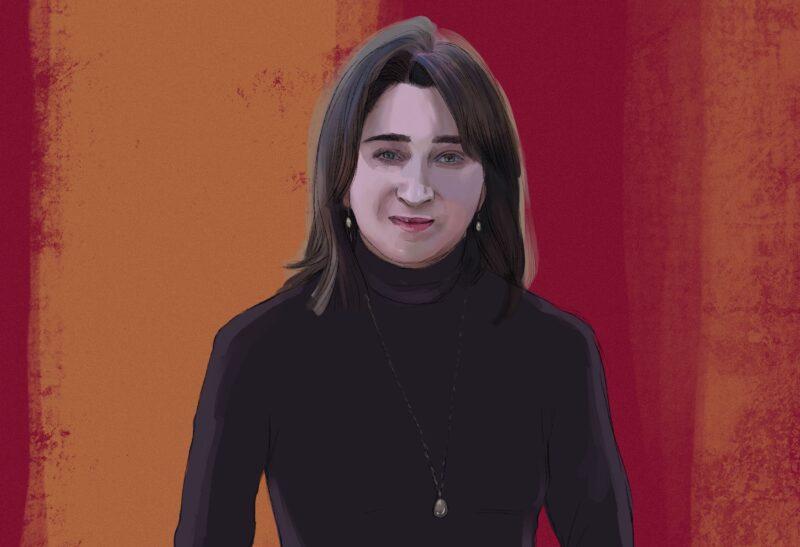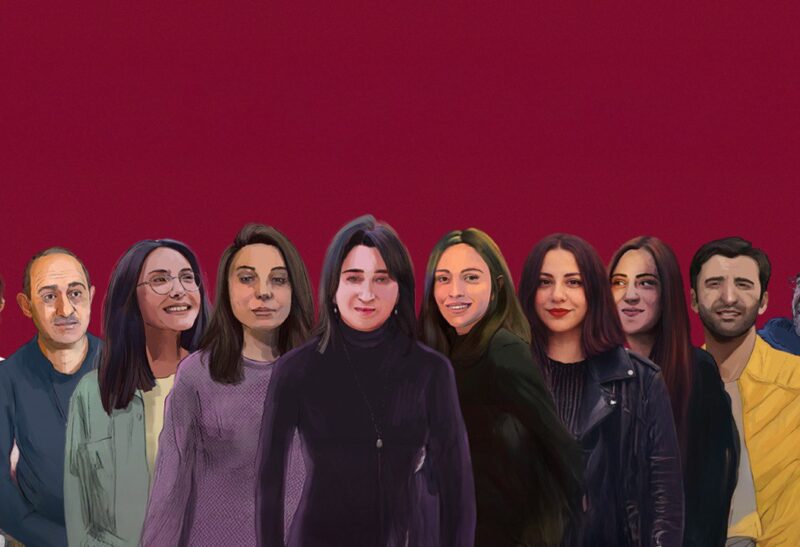“This is the punishment for political activity, opposition, criticism of the government in Azerbaijan.”
Some members of opposition parties and activists in Azerbaijan say they have faced discrimination at different times due to their political activities. Students talk about warnings from university leadership while working people mention layoffs.
“The director said he doesn’t need any extra problems.”
Aziz Mamiev has been a member of the ‘Musavat’ party for over eight years.
According to him, at the beginning of 2022, he was working in the restaurant industry. During that time, he consistently received various threats to his life and health on social media, and reporting to the police yielded no results. Therefore, on April 5, he decided to stage a lone protest in front of the Ministry of Internal Affairs building. That same evening, he was informed that he was fired.
“I came home, and my boss messaged me, telling me not to come to work from the next day onwards. The justification was that I engage in political activities, and they don’t need any extra problems,” – recounted Mamiev to Meydan TV.

For several months, Aziz remained unemployed, then he managed to find work outside the city. After some time, he participated in a demonstration in front of the Cabinet of Ministers demanding the opening of land borders. During this protest, he was detained and arrested. Upon release from detention, he once again found himself without a job.
“I didn’t even manage to get the salary owed to me. I wanted to go there to collect it, but my colleagues advised me not to show up. They printed my photo, hung it on the wall, and instructed security to detain me as soon as I arrived,” says Mamiev, adding, “This is the punishment for political activity, opposition, criticism of the government in Azerbaijan: people are driven from their jobs, their livelihoods disrupted, they live in need, and they get arrested…”
What does the law say?
According to Article 35 of the Constitution of the Republic of Azerbaijan, everyone has the right to work in safe and healthy conditions without any discrimination.
Furthermore, Article 16 of the Labor Code explicitly prohibits any discrimination among employees in labor relations and limits their rights based on political beliefs.
Lawyer Fariz Namazli mentions that depending on the restrictions imposed on the employee, various legal steps can be taken.
“For instance, if an employee believes they were fired due to their political views, they should file a lawsuit within a month to challenge the dismissal order. Additionally, they need to prove that the dismissal was politically motivated. Moreover, if the employee is deprived of normal working conditions unlike other employees at the workplace, they can appeal to the State Labor Inspection.”
Moreover, according to F. Namazli, if the employee believes they have suffered material and moral damage, they have the right to claim compensation.
But in practice, it’s a different story.
“The head of the executive authority called me and said, ‘For God’s sake, don’t go to the rally.“
Being a member of the Azerbaijan Popular Front Party (APFP) and chairing one of its district branches, 52-year-old Mehriban Guseynli faced a similar issue.
A graduate of the Law Faculty at Baku State University, she worked as a postwoman in the Baku settlement of Zabrat until 2013. In 2013, she joined the ranks of the APFP, after which pressure at work gradually began to mount against her.

“As soon as the rallies began, employees from the executive authority started swarming our post office. Policemen lined up at the doors, keeping watch to detain me when I planned to attend the rally. The head of the executive authority called me and said, ‘For God’s sake, don’t go to the rally, or they’ll give us trouble. Why do you need this?’ He said, ‘You’re working, so just work.’ And I replied, ‘What does my job have to do with where I go? Am I not doing my job well? Are there complaints against me? None.’
M. Guseynli explains that this pressure kept escalating, and she was already sure she would be fired.
“They started sending the same letters twenty times a day. And when you bring the same letter to people’s homes multiple times, it irritates them. Well, I didn’t distribute them. I told the department head that this plan was against me. An inspection came, asking, ‘How many letters are left?’ I showed them the remaining ones. They asked, ‘Why so many?’ I said, ‘These letters come every day, they have already been delivered, and people are unhappy. Why should I annoy these people? They are already pushing me away at the doorstep.’ The inspector didn’t say anything else and left. Not a day passed before I was fired. Moreover, for a gross violation of labor functions. During that period, most of the members of the Popular Front were fired under this article.”
Former political prisoners periodically suffer from this same problem.

For instance, Fuad Ahmedli, a member of APFP (Azerbaijan Popular Front Party) recognized by human rights activists as a political prisoner, has been unemployed for three years. Before his arrest, he worked for the mobile operator ‘Azfon.’ Despite reaching out to both local and international companies regarding vacancies in his field, it’s been futile. According to him, the main reason is that he was arrested for his political activities.
Two years ago, Jalil Zabidov, a former member of the Democracy 1918 movement and a former political prisoner, conducted a protest in front of the Ministry of Education for the same reasons. Zabidov mentioned that after his release, he couldn’t return to his previous job, nor, despite his 13 years of teaching experience, could he find employment at another school.
Although the State Employment Service under the Ministry of Labor and Social Protection claims to allocate job positions based on quotas for individuals released from detention facilities and assist them in employment, the reality differs.
Yet, political activists face persecution not only in workplaces. Youths encounter pressure within universities.
“They tried to exert pressure on me through my family as well.”
Farid Imanov is a fourth-year student at Baku Slavic University. He is engaged in civil and political activism and was the chairman of the ‘Student Power Center’ organization for some time.
Farid explains that due to this involvement, both he and his family have received warnings from the university management several times.

“I was summoned to the dean’s office, and they said, ‘We know you as a good student, and we think that it’s better if active students like you, with great potential, contribute to internal university organizations rather than associating with people on the side who mess with your head and manipulate you. ‘They deceive you,’ ‘They won’t stand up for you,’ implanting such thoughts, the university management tried to dissuade me from my activities. My parents were called into the university several times to say: ‘Here, your son is involved in such things, and it ends up in prison and torture.’ So, they also tried to pressure me through my family.”
During that same period, student activist Rustam Ismayilbayli was also threatened with expulsion from the university for writing about student issues. Rustam mentioned that he and his comrades, who shared the same political views, faced additional difficulties in classes and exams, were not allowed into rooms without surveillance cameras, and were constantly monitored.
Aziz Mamiev is currently officially unemployed and makes ends meet with occasional freelance work. Mehriban Guseynli does day labor in greenhouses. But despite all these deprivations, they claim that they have no regrets about their political choices.
“Those who criticize the government’s policies in this country are systematically discriminated against. Authorities have made people similar to themselves. That’s why I don’t hold grudges against people and have already come to terms with it. I have never regretted my political activities. I always told everyone about it, no matter where I worked. My protest voice will always be heard in the squares,” says Aziz Mamiev.
Mehriban Guseynli holds a similar opinion:
“Seeing how much grief and suffering the authorities bring to the people, purely from a humane perspective, I cannot sit idly by in the fight for their salvation.”
With the support of MediaSet.



